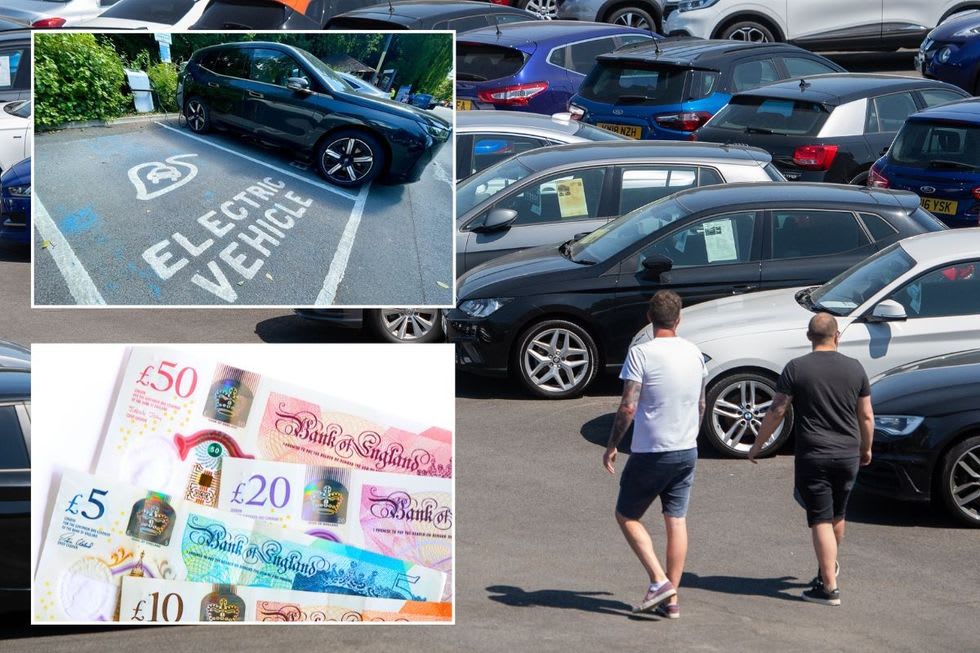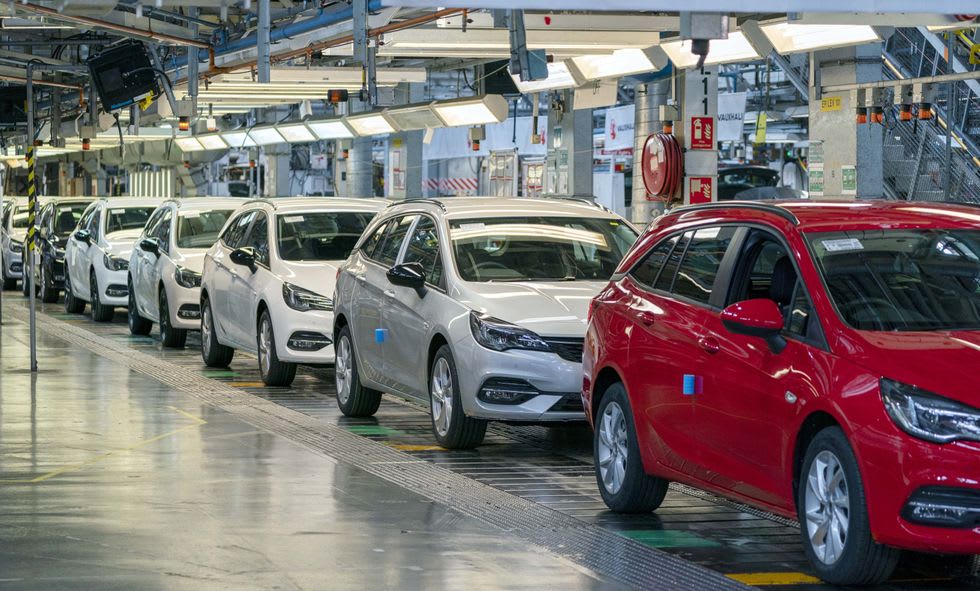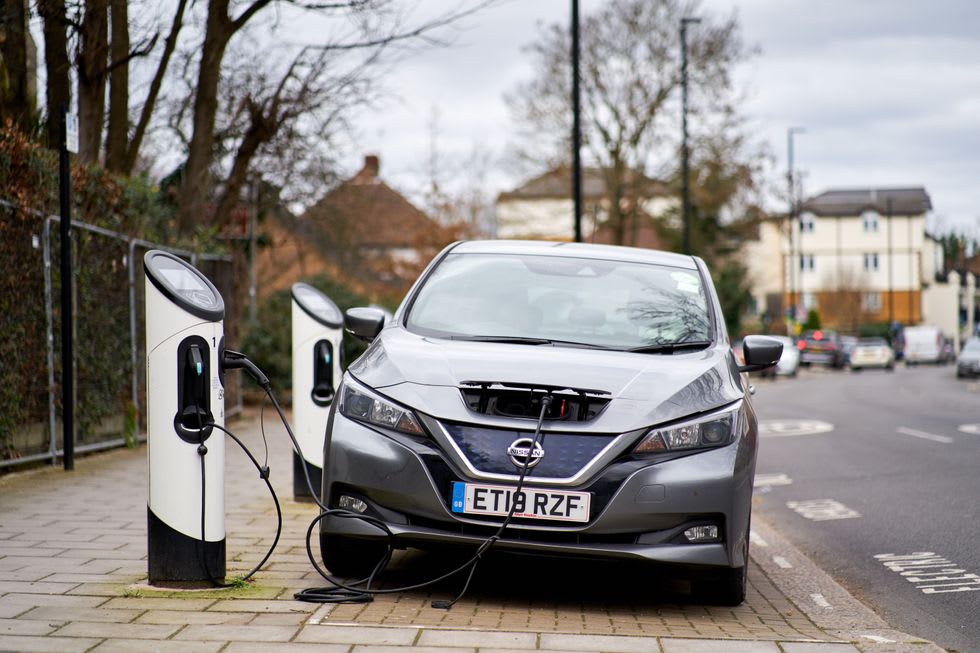Labour dealt 'shambolic' blow as new electric car plans fail to attract petrol and diesel drivers
Labour has faced a "shambolic" start to its new plans to push drivers away from petrol and diesel cars after carmakers experienced serious confusion over new grants.
It comes nearly a month after the introduction of the Electric Car Grant programme has encountered significant difficulties, with automotive industry professionals describing the implementation as deeply flawed.
The scheme, which was announced on July 16, established a "dual-tier" structure for electric vehicles priced below £37,000.
**ARE YOU READING THIS ON OUR APP? DOWNLOAD NOW FOR THE BEST GB NEWS EXPERIENCE**
Vehicles meeting stringent environmental manufacturing criteria qualify for Band 1 status, entitling buyers to a £3,750 reduction, while Band 2 vehicles receive a smaller £1,500 discount.

GETTY/PA
The new Electric Car Grant hoped to make electric cars more affordable, but has yet to make a difference
However, the initiative has faced significant hurdles from the beginning.
Currently, not a single electric vehicle has met the requirements for the maximum discount amount. Only 17 models have been approved for grants, all falling within the lower Band 2 category.
The absence of any Band 1 eligible vehicles has created widespread frustration amongst carmakers and potential buyers who hoped the grants would make buying an EV more affordable.
Although the Nissan Leaf is expected to meet the criteria for the maximum discount, it remains unavailable for purchase, experts detailed.
The classification system relies on Science-Based Targets, which assess manufacturers' carbon footprint during battery and vehicle production.

PA
Experts have warned that the lack of clarity around the electric car grant could impact sales
This complex process determines whether models receive a higher or lower grant amount. Dealerships have now warned that the uncertainty surrounding vehicle eligibility has "paralysed" the market.
Now, prospective buyers have been forced to postpone their purchases, hoping their preferred models might eventually qualify for the more substantial discount.
This hesitation has created an unexpected bottleneck in electric vehicle sales, precisely when the Government intended to accelerate adoption as part of its ambitious Zero Emission Vehicle mandate.
Neil McCue, who leads the South Coast-based Snows dealership network, described the grant as "ill thought out".
He said: "We have seen customers holding off buying electric cars in July, and we're seeing it again in August. They're all asking for their £3,750 discount and we can't give it to them."
Mr McCue questioned the scheme's complexity, arguing that linking discounts to manufacturing emissions had overcomplicated what should have been a straightforward sales incentive.
Meanwhile, Peter Smyth from Swansway dealerships echoed these sentiments, labelling the programme "shambolic" and noting it was generating "too much confusion" amongst showroom visitors.
He advocated for a simpler approach, suggesting a blanket VAT reduction on qualifying vehicles would have been more effective and immediately implementable.
The Society of Motor Manufacturers and Traders reported a five per cent decrease in new car registrations during July, attributing the decline to "external factors".
SMMT chief Mike Hawes emphasised the need for "consumer certainty" regarding the grant structure.

PA
The electric car grant hoped to offer drivers more discounts from certain brands
Car Dealer Magazine's editor, James Baggott, added: "We are hearing from dealers across the country that this scheme is having the opposite effect of what the government intended. The delay in announcing eligible cars is causing electric car sales to stall."
But the Department for Transport defended the programme with a spokesperson stating that it expects dozens of models to be eligible for the Electric Car Grant.
The spokesperson explained that so far 17 models have been announced to date, with "many more to come, providing a substantial boost for the industry and saving drivers thousands of pounds".
They also confirmed that eligible vehicle lists were being updated online and comprehensive manufacturer guidance had been issued.